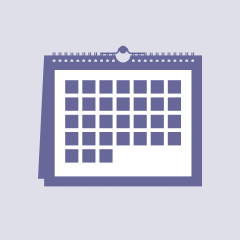Monthly Corner
IDH Publication, 2026
Gender-Based Violence (GBV) is not just a social issue, it’s a systemic challenge that undermines agricultural value chains.
In rural and isolated areas, GBV threatens women’s safety, limits their economic participation, and weakens food security. When women cannot work safely, entire communities lose resilience, and businesses lose productivity. Climate resilience strategies that overlook gendered risks leave communities exposed and women vulnerable.
Ending GBV is essential for building equitable, sustainable, and climate-resilient agri-food systems; and it’s not only a human rights imperative, but also central to climate adaptation and economic stability.
The good news? Solutions work. Programs like the Women’s Safety Accelerator Fund (WSAF) demonstrate that addressing GBV can enhance productivity and strengthen workforce morale and brand reputation. Safe, inclusive workplaces aren’t just good ethics, they’re smart business.
Gurmeet Kaur Articles
Luc Barriere-Constantin Article
This article draws on the experience gained by The Constellation over the past 20 years. It is also a proposal for a new M&E and Learning framework to be adopted and adapted in future projects of all community-focused organisations.
Devaka K.C. Article
Sudeshna Sengupta Chapter in the book "Dialogues on Development edited by Prof Arash Faizli and Prof Amitabh Kundu."
Events
Vacancies
- We’re Hiring: National Evaluation Consultant – Bangladesh
UN Women is recruiting a National Evaluation Consultant (Bangladesh) to support the interim evaluation of the Joint Regional EmPower Programme (Phase II).
This is a great opportunity to work closely with the Evaluation Team Leader and contribute to generating credible, gender-responsive evidence that informs decision-making and strengthens programme impact.
📍 Location: Dhaka, Bangladesh (home-based with travel to project locations)
📅 Apply by: 24 February 2026, 5:00 PM
🔗 Apply here: https://lnkd.in/gar4ciRr
If you are passionate about feminist evaluation, gender equality, and rigorous evidence that drives change (or know someone who is) please apply or share within your networks.
- Seeking Senior Analyst - IPE Global
About the job
IPE Global Ltd. is a multi-disciplinary development sector consulting firm offering a range of integrated, innovative and high-quality services across several sectors and practices. We offer end-to-end consulting and project implementation services in the areas of Social and Economic Empowerment, Education and Skill Development, Public Health, Nutrition, WASH, Urban and Infrastructure Development, Private Sector Development, among others.
Over the last 26 years, IPE Global has successfully implemented over 1,200 projects in more than 100 countries. The group is headquartered in New Delhi, India with five international offices in United Kingdom, Kenya, Ethiopia, Philippines and Bangladesh. We partner with multilateral, bilateral, governments, corporates and not-for-profit entities in anchoring development agenda for sustained and equitable growth. We strive to create an enabling environment for path-breaking social and policy reforms that contribute to sustainable development.
Role Overview
IPE Global is seeking a motivated Senior Analyst – Low Carbon Pathways to strengthen and grow its Climate Change and Sustainability practice. The role will contribute to business development, program management, research, and technical delivery across climate mitigation, carbon markets, and energy transition. This position provides exceptional exposure to global climate policy, finance, and technology, working with a team of high-performing professionals and in collaboration with donors, foundations, research institutions, and public agencies.
Is Timing Everything?: Considering the Do’s and Don’ts for Engaging Men and Boys across their Life Course
Event Details

Time: January 28, 2021 from 8am to 9am
Location: Online "8 AM Washington DC"
Event Type: webinar
Organized By: Breakthrough ACTION
Latest Activity: Jan 27, 2021
Export to Outlook or iCal (.ics)
Event Description
Interventions aiming to meaningfully engage men and boys in understanding and transforming their relationships with their health and well-being often focus on important life events and transitions (e.g., sexual initiation, graduations, birth of first child). Yet the theoretical underpinning of why transitions are a strong moment for intervention is seldom emphasized in the literature. This session will use the Do’s and Don’ts for Engaging Men and Boys and recent interventions in Bangladesh and Zambia to showcase good practices and lessons learned for meaningful engagement in health programming (e.g. COVID-19, gender-based violence, integrated health, family planning) at critical and sensitive points in their lives and their contexts. It will then apply a life course lens to these interventions to further examine the gendered realities of men and boys in different life stages—infancy and childhood, adolescence, and adulthood—and identify implications for enhancing programming impacting men and boys’ health and well-being.
© 2026 Created by Rituu B Nanda.
Powered by
![]()

RSVP for Is Timing Everything?: Considering the Do’s and Don’ts for Engaging Men and Boys across their Life Course to add comments!
Join Gender and Evaluation